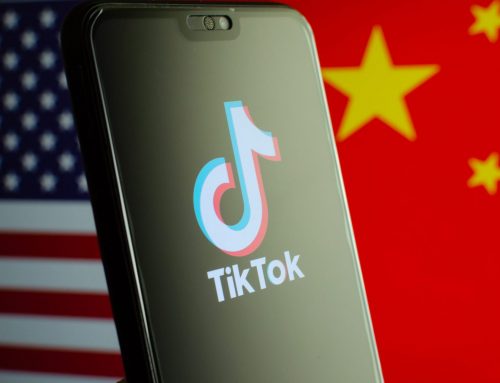Last week, Russian state media—and in one instance the Russian Foreign Ministry—continued to hammer the United States over the migrant crisis at the southern border, characterizing the situation as a humanitarian disaster and highlighting reports of horrific incidents and situations involving migrant children. In particular, Sputnik elevated criticism of the Biden administration’s response from the U.S. political right, emphasizing statements made by GOP politicians and relying heavily on Fox News’ coverage of the situation and commentary from anti-immigration think tanks. A small amount of content again targeted Vice President Harris related to her lack of formal press conferences on the issue and lingering coverage of her “laughing” response to a question about the border crisis the previous week (again largely lifted from Fox News reporting). The start of the trial of Derek Chauvin received limited attention from Russian state media, which primarily provided factual coverage of the testimony. Some of RT’s channels targeting more left-wing audiences issued calls for justice for George Floyd and again highlighted the issue of systemic racism in the United States. One outlier opinion piece on RT criticized the emphasis on race in this case. Russian state media and diplomats also continued their usual promotion of the Sputnik V vaccine last week, particularly emphasizing receptiveness to and enthusiasm for the Russian vaccine in Europe, while again highlighting various controversies, reported side-effects, and problems affecting Western vaccines. It is also worth noting that Russia’s @sputnikvaccine account gained more than 31,000 followers in the last week, which is by far the largest follower gain of any monitored account (the next closest account gained less than 900 followers). Russian messaging also celebrated another vaccine-related “world’s first”: this time a Covid-19 vaccine for animals. In a related celebration of Russian technological achievements, Russian diplomats began gearing up to mark the 60th anniversary of cosmonaut Yuri Gagarin becoming the first person in space on April 12, 1961, with a spate of messaging celebrating Gagarin and his flight, including the hashtag #FirstInSpace.
Once again, Xinjiang was the most mentioned topic by Chinese government and diplomatic accounts on Twitter last week. “Xinjiang” was mentioned three times as much as “Covid19,” the second most mentioned topic by those accounts. Xinjiang-related content from diplomatic accounts saw the most engagement and ran the gamut of China’s propaganda’s usual arguments: people in Xinjiang are free and happy, the West’s concern for Uyghurs is really meant to divide China, and Western media’s coverage of the region is biased. Chinese state media also provided extensive coverage of Xinjiang-related stories. The most-viewed YouTube video from CGTN last week was an excerpt from a press conference in which the spokesperson for the Chinese ministry of foreign affairs Hua Chunying lectured a BBC producer about impartiality, with other top videos stressed that China would no longer give in to “Western bullying,” along with fawning admiration for Xinjiang’s development. Of note last week was the Chinese state’s attempts to use social media influencers to legitimize the CCP’s policies in Xinjiang. A video that was shared by several diplomats showed a Canadian vlogger dismissing criticism about human rights abuses as propaganda. Meanwhile, a CGTN segment showed an Israeli blogger visiting a model cotton farm in Xinjiang. CGTN was also outed last week for fabricating a French journalist to “author” pro-CCP articles about Xinjiang and Taiwan. As in previous weeks, the Chinese propaganda apparatus’ defense of the CCP’s human rights abuses in Xinjiang was also accompanied by heavy criticism of wrongdoings, past and present, committed by the democracies now criticizing Beijing. Foreign ministry spokesperson Zhao Lijian pointed to U.S. (and allies) past military interventions, while his colleague Hua Chunying deplored the “displacement of millions of Muslims” brought on by wars in the Middle East. There was also extensive coverage of the issue of racism in the United States, with Zhao Lijian drawing a connection between Floyd’s killing and the current spike in anti-Asian hate crimes (a video shared by the Chinese consul in Kolkata and the People’s Daily, however, showed a black man beating an Asian man on the New York subway, eliciting a flood of racially insensitive messages in the comments). State media also provided extensive coverage of racism against the AAPI community, with CGTN sharing a U.S. vlogger’s take on how Western media foment hate crimes, Global Times blaming “worsening bilateral ties,” and Xinhua amplifying the grim statistics of anti-Asian racism.
Iranian state-backed media provided extensive coverage of the trial of Derek Chauvin for the murder of George Floyd, in some cases framing the trial as emblematic of racial injustice in the United States. PressTV quoted the Floyd family’s legal team’s charge that the United States is “one of the most hypocritical states,” a claim often made by Iranian officials and state media. PressTV also reported on immigrant detention at the U.S. border, calling facilities “concentration camps.” But the main focus of the week was, once again, the Iran nuclear agreement. The agreement remained the top issue covered by Tehran-linked media and diplomatic accounts by a substantial margin, with 88 mentions of the #JCPOA, compared with 61 for #tourism and 55 for #COVID19. Foreign Minister Zarif remained firm that Iran will return to compliance only after the United States fulfills its commitments, and he urged European countries to reject U.S. sanctions. The supreme leader and state media emphasized that Iran wants but does not need an end to U.S. sanctions. In some cases, Iranian media used anglophone fringe journalists to allege that U.S. and European governments are working to sabotage the agreement. PressTV also gave space to pro-CCP social media provocateur Carl Zha to discuss the recent strategic partnership agreement signed between China and Iran, identifying him as “an American-Chinese social media activist with extensive knowledge of Chinese foreign policies.” In coronavirus coverage, Iranian accounts touted the construction of a vaccine production facility in Iran, while PressTV and other outlets covered issues related to Western vaccines and Western government responses to the pandemic, including coverage of Dr. Deborah Birx’s CNN interview, which it used to claim former President Trump’s response to the pandemic killed “hundreds of thousands of Americans.”
Explore the Hamilton 2.0 dashboard here.
The views expressed in GMF publications and commentary are the views of the author alone.








